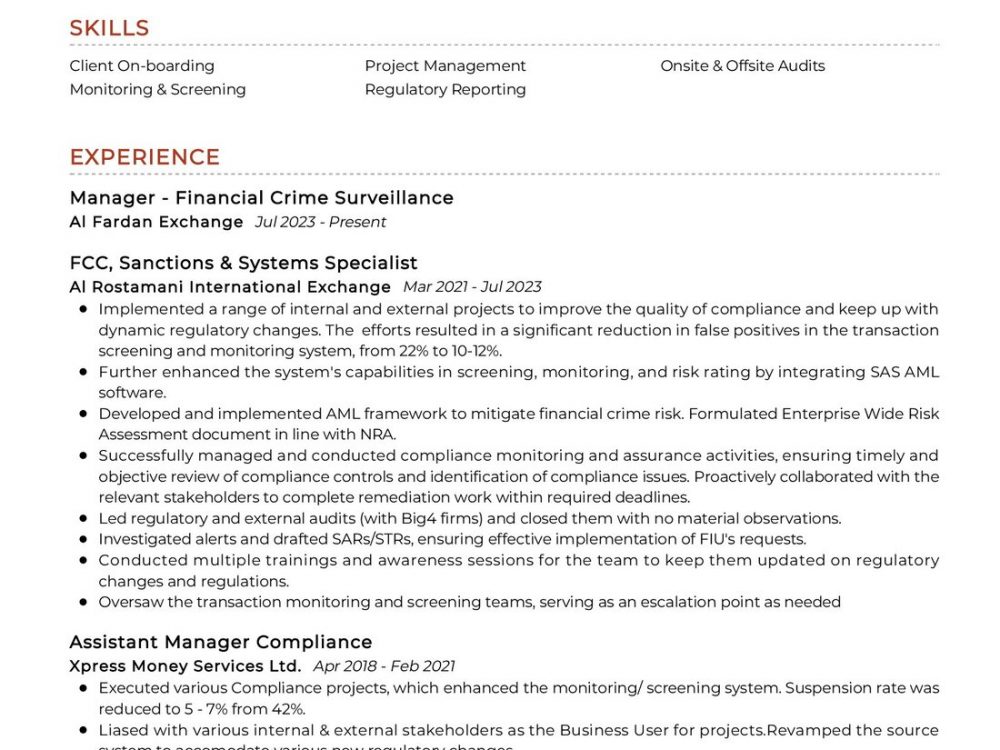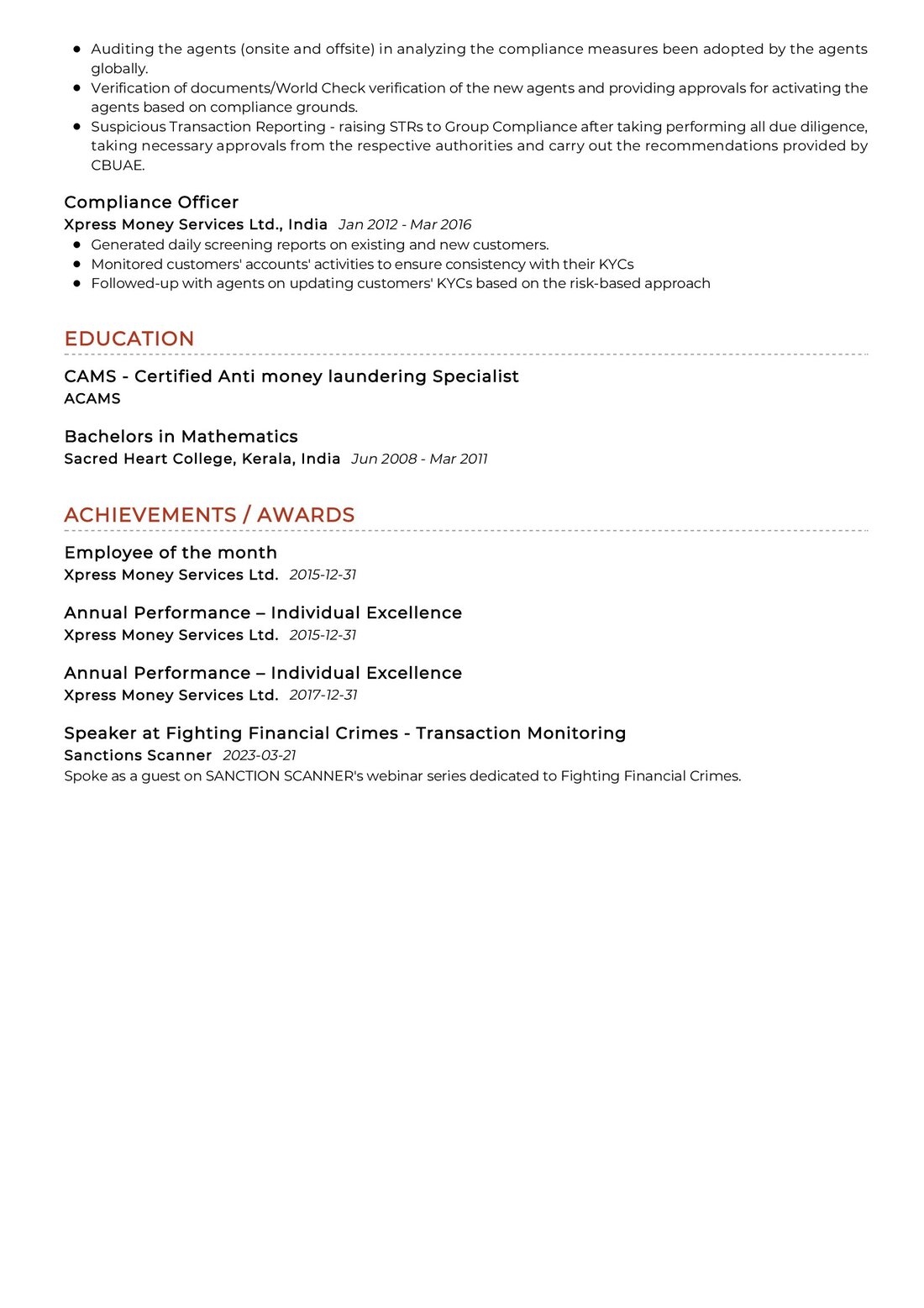What is the Role of a Compliance Officer?
In today’s dynamic regulatory environment, the role of a Compliance Officer holds immense significance, serving as the guardian of ethical practices and regulatory adherence within organizations. This position entails a blend of legal acumen, analytical skills, and a deep understanding of industry-specific regulations. Let’s delve deeper into the multifaceted role of a Compliance Officer, a crucial position that demands a meticulous approach and a keen eye for detail.
A Compliance Officer is responsible for ensuring that an organization adheres to all relevant laws, regulations, and internal policies. They serve as a guiding force, facilitating a culture of compliance that not only mitigates legal risks but also fosters ethical practices and organizational integrity. Compliance Officers often collaborate with various departments to develop and implement compliance programs, ensuring that every aspect of the organization’s operations aligns with legal requirements and industry standards.
What are the Compliance Officer Job Requirements?
Becoming a successful Compliance Officer requires meeting specific qualifications and possessing a diverse skill set that enables effective navigation of complex regulatory landscapes. Let’s explore the key prerequisites that one needs to fulfill to excel in the role of a Compliance Officer:
- A Bachelor’s or Master’s degree in Law, Business Administration, or a related field, showcasing a strong foundation in legal and business principles.
- In-depth knowledge of industry-specific regulations and a comprehensive understanding of legal compliance frameworks.
- Experience in developing and implementing compliance programs, demonstrating the ability to translate regulatory requirements into practical strategies.
- An analytical mindset with strong attention to detail, enabling the identification of potential compliance issues and the implementation of effective solutions.
- Excellent communication and interpersonal skills, crucial for collaborating with different departments and effectively conveying complex regulatory concepts.
- Ability to adapt to changing regulatory environments and proactively implement necessary changes to ensure continuous compliance.
Obtaining relevant certifications in compliance management can further enhance your credibility and expertise in the field.
What are the Responsibilities of a Compliance Officer?
The responsibilities of a Compliance Officer revolve around ensuring that an organization operates within legal and ethical boundaries. Let’s outline the core responsibilities that define the role of a Compliance Officer, each task aimed at upholding the integrity and credibility of the organization:
- Developing and implementing compliance policies and procedures to ensure adherence to legal requirements and industry standards.
- Conducting regular compliance audits and risk assessments to identify potential areas of non-compliance and develop strategies to address them effectively.
- Providing guidance and training to employees to ensure a comprehensive understanding of compliance regulations and ethical practices.
- Collaborating with legal teams to interpret laws and regulations, ensuring that the organization’s operations align with legal requirements.
- Staying updated with changes in regulations and industry best practices to proactively adjust the compliance program as needed.
- Reporting any compliance violations or breaches to senior management and implementing corrective actions to prevent future occurrences.
Each responsibility requires a proactive approach and a commitment to upholding the highest standards of legal and ethical conduct.
Compliance Officer CV Writing Tips
Crafting a compelling CV as a Compliance Officer is essential to showcase your expertise and experience in ensuring regulatory compliance. Here are some tips to help you create a standout CV:
- Highlight your experience in developing and implementing compliance programs, emphasizing the positive impact on organizational integrity and regulatory adherence.
- Detail specific instances where your actions led to the identification and resolution of potential compliance issues, showcasing your analytical skills and attention to detail.
- Include any relevant certifications or training programs related to compliance management, demonstrating your commitment to continuous learning and professional development.
- Customize your CV for each application, emphasizing the key skills and experiences that align with the specific requirements of the role.
Each tip serves as a stepping stone to creating a compelling CV that highlights your expertise and suitability for the Compliance Officer position.
Compliance Officer CV Summary Examples
Your CV summary serves as the first impression of your qualifications and expertise. It should succinctly encapsulate your skills, experience, and value as a Compliance Officer. Here are some examples to guide you:
- “Detail-oriented Compliance Officer with a strong legal background and a proven track record of designing and implementing robust compliance programs to ensure organizational integrity and legal adherence.”
- “Experienced Compliance Officer adept at conducting thorough compliance audits and risk assessments, with a demonstrated ability to provide comprehensive guidance to ensure the organization’s adherence to all relevant laws and regulations.”
- “Analytical and proactive Compliance Officer with in-depth knowledge of industry-specific regulations, skilled at interpreting complex legal concepts and translating them into effective compliance strategies that align with the organization’s goals and values.”
Each summary serves as a glimpse into your professional capabilities, providing a compelling overview of your suitability for the Compliance Officer role.
Create a Strong Experience Section for Your Compliance Officer CV
Your experience section is a critical component of your CV, providing detailed insights into your past roles and contributions as a Compliance Officer. Here are some examples to guide you:
- “Led comprehensive compliance audits, identifying potential regulatory risks and implementing proactive measures that resulted in a 15% decrease in compliance-related issues within the organization.”
- “Developed and implemented a robust compliance training program for employees, leading to a 30% increase in overall compliance awareness and adherence to industry-specific regulations.”
- “Collaborated with legal teams to ensure that all company policies and procedures align with federal and state regulations, successfully mitigating legal risks and maintaining the organization’s reputation for ethical practices.”
Each experience highlights your proactive approach to compliance management and your ability to drive positive change within the organization.
Sample Education Section for Your Compliance Officer CV
Your educational background serves as a testament to your expertise and knowledge in legal and compliance practices. Here’s how you can list your educational qualifications:
- Master of Laws in Compliance Management, XYZ Law School, 2018, an in-depth exploration of legal frameworks and compliance strategies.
- Bachelor of Business Administration, ABC University, 2015, providing a strong foundation in business principles and legal practices.
- Certified Compliance Professional (CCP), demonstrating your commitment to professional development and expertise in the field of compliance management, 2020.
Each educational milestone showcases your dedication to continuous learning and your specialization in compliance management.
Compliance Officer Skills for Your CV
Your skill set as a Compliance Officer reflects your ability to navigate complex regulatory environments and ensure organizational integrity. Let’s list down the essential skills that a Compliance Officer should possess:
Soft Skills:
- Attention to detail, ensuring thorough examination and analysis of legal and regulatory requirements.
- Analytical thinking, enabling the identification of potential compliance issues and the development of effective solutions.
- Strong communication skills, essential for conveying complex legal concepts and compliance requirements to different stakeholders within the organization.
- Adaptability, allowing you to adjust to evolving regulatory landscapes and implement necessary changes efficiently.
- Integrity, maintaining ethical standards and upholding the organization’s values and reputation.
Hard Skills:
- Compliance program management, showcasing your ability to develop, implement, and monitor effective compliance programs.
- Risk assessment, enabling you to identify potential compliance risks and take proactive measures to mitigate them.
- Regulatory knowledge, a comprehensive understanding of relevant laws and regulations in your specific industry.
- Data analysis, allowing you to utilize data to assess compliance levels and identify areas for improvement.
- Legal research, enabling you to stay updated with changes in laws and regulations that may affect the organization’s compliance.
Each skill is a crucial asset in ensuring regulatory compliance and upholding the integrity of the organization.
Most Common Mistakes to Avoid When Writing a Compliance Officer CV
When crafting your CV as a Compliance Officer, it is vital to steer clear of common pitfalls that can undermine your professional credibility. Let’s discuss the most common mistakes and how to avoid them:
- Avoid using generic language that fails to highlight your specific contributions and achievements as a Compliance Officer.
- Ensure your CV focuses on tangible results and accomplishments rather than solely listing job responsibilities.
- Don’t overlook the importance of formatting and organization, as a cluttered or disorganized CV can make it challenging for recruiters to find relevant information.
- Avoid providing irrelevant personal information that does not contribute to showcasing your qualifications and expertise in compliance management.
- Proofread your CV thoroughly to eliminate any grammatical errors or typos that can detract from your professionalism and attention to detail.
Avoiding these mistakes will ensure that your Compliance Officer CV effectively highlights your qualifications and experience, setting you apart as a top candidate for the role.
Key Insights for Your Compliance Officer CV
As you conclude your CV writing process, keep in mind the key insights that will help you create a compelling and effective document that resonates with potential employers:
- Emphasize your role as a guardian of ethical practices and regulatory adherence, showcasing your commitment to upholding the highest standards of integrity within the organization.
- Highlight your ability to interpret complex legal concepts and translate them into practical compliance strategies that align with the organization’s goals and values.
- Showcase your proactive approach to regulatory compliance, emphasizing your experience in developing and implementing effective compliance programs that mitigate legal risks and ensure organizational integrity.
- Include a section on continuous professional development, showcasing any certifications, training programs, or workshops that reflect your commitment to staying updated with industry best practices and regulatory changes.
Finally, feel free to utilize resources like AI CV Builder, CV Design, CV Samples, CV Examples, CV Skills, CV Help, CV Synonyms, and Job Responsibilities to create a standout application and prepare for the Compliance Officer job interview.



